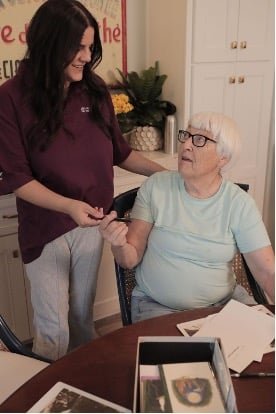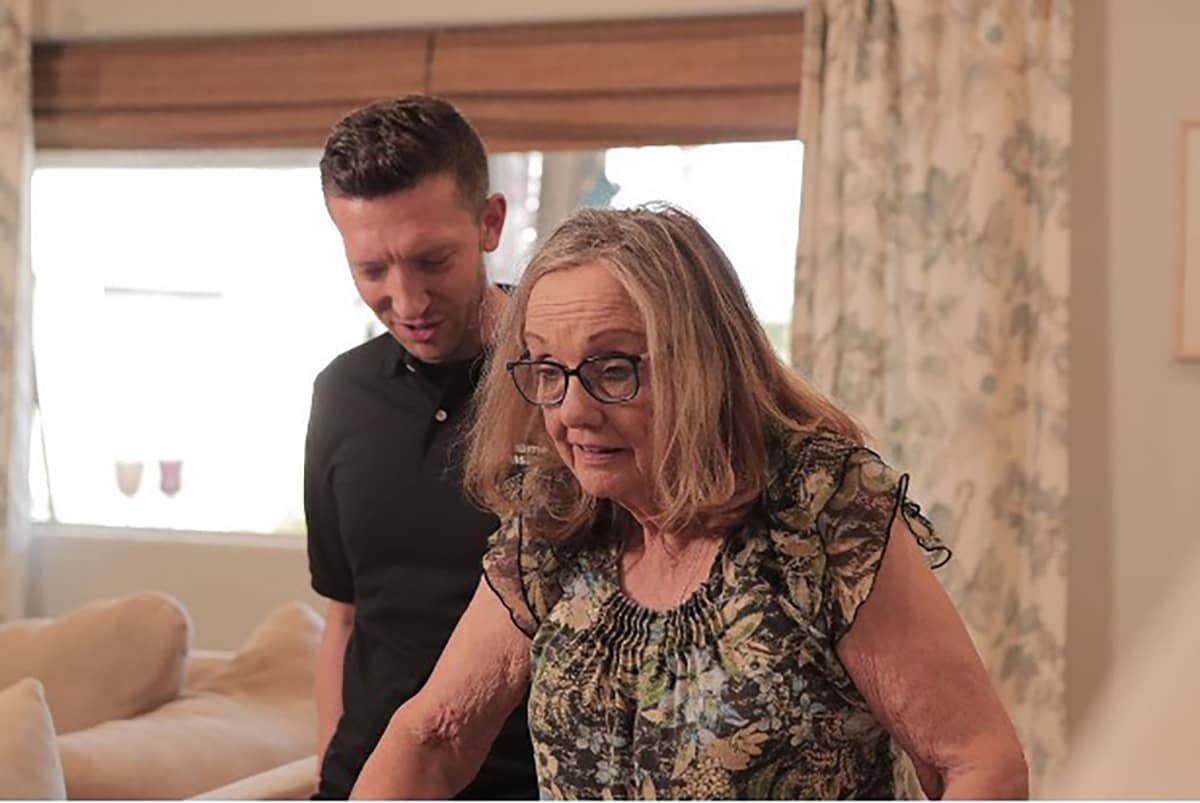Caring for a loved one with dementia requires patience, understanding, and a strong commitment to their safety and well-being. One of the most important aspects of caregiving is ensuring a safe living environment, which may require alterations to your current home environment.
Here at Home Instead, we have helped transition many homes that are still family-friendly, but remain safe for our loved ones with dementia. Here are our quick tips to help your loved one with dementia feel safer in your home:
General Safety Tips For Your Loved One With Dementia
- Remove clutter from pathways
- Rearrange furniture as needed
- Keep cords away from common spaces
- Remove area rugs
- Add another railing to stairs
- Bring in additional lighting
- Communicate changes with your run down
Although this is the quick rundown, here is a more in-dept review of our top tips to help you create a secure and comfortable space for the entire family:
Remove clutter from pathways
Creating clear and clutter-free pathways is crucial for preventing accidents and falls. Dementia can affect spatial awareness and coordination, making it easy for your loved one to trip over objects in their way.

Not sure what clutter is actually in the way? Take a stroll through your home and identify any items that could potentially obstruct your walkway. If you’re questioning it, remove it. By keeping the walking areas free from clutter, you'll help minimize the risk of accidents and create a more accessible environment for your loved one.
Rearrange furniture as needed
As dementia progresses, your loved one's mobility and spatial perception may change. Rearranging furniture to create open spaces and easy navigation can significantly improve their safety. Consider placing furniture against walls and avoid sharp corners. This not only reduces the chances of collisions, but also promotes a more comfortable and inviting living arrangement your loved one will want to congregate in.
Keep cords away from common spaces
Electrical cords can be a tripping hazard, especially if they're running across frequently used areas. Make sure to secure cords along the baseboards or tuck them behind furniture to prevent accidental falls. You might also consider using cord covers to keep them out of sight and out of the way.
Remove area rugs
While area rugs can add a cozy touch to your home, they can also pose a significant risk to your loved one with dementia. Loose or wrinkled rugs can easily cause falls, but even the flattest of rugs still allow your loved one’s foot to get caught underneath it. If possible, it's best to remove area rugs altogether, but if you want to keep them, make sure they're secured with non-slip pads or double-sided tape to prevent any accidents.

Add another railing to stairs
If your home has stairs, adding an additional railing can provide extra support and stability for your loved one. Climbing stairs can become challenging for individuals with dementia, especially as their cognitive and physical abilities change. A sturdy railing on both sides of the staircase can make ascending and descending safer and more manageable.
Considering bringing in additional lighting
Poor lighting can contribute to confusion and increase the risk of falls. Take a look at the lighting in every room, especially in areas that might be naturally dim. Consider installing brighter light bulbs or adding additional lighting fixtures where needed. Nightlights in hallways and bathrooms can be particularly helpful for preventing disorientation during the night.
To keep a balance between lighting spaces for your loved one, but not making your home feel overly bright, we always recommend motion sensored light fixtures. They are relatively inexpensive and are perfect for when your loved one needs them.
Communicate changes with your loved one
Changes of any kind to your loved one’s safe space may be a cause of anxiety to them. To avoid any distress, always communicate home changes to your loved one and involve them in decisions as much as possible. Explain why certain modifications are being made and reassure them that their comfort and well-being are your top priorities.
If you are worried about these changes affecting their emotions, implement the modifications gradually. This will allow your loved one to adapt to the changes at their own pace and not feel as overwhelmed.

Creating a safe home environment for a loved one with dementia requires careful thought and attention, but the effort is well worth it. By removing clutter and preplanning for potential hazards, you're taking significant steps toward promoting their safety and enhancing their quality of life.
If you’re having trouble implementing home safety tips that feel comfortable for both you and your loved one, please reach out to Home Instead for assistance.



